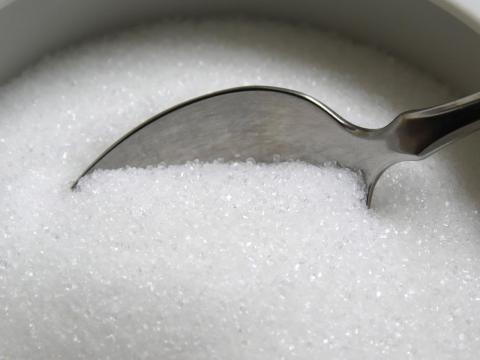Reaction: Genetic study shows high levels of caffeine in blood could reduce body fat and risk of type 2 diabetes
Previous research has shown that coffee drinking is associated with a lower risk of cardiovascular disease, but most are short-term, observational studies - they describe associations without being able to determine cause and effect. Research published in BMJ Medicine uses another method (Mendelian randomisation) to study potential causal relationships between caffeine levels in plasma and cardiovascular health, using genetic variants in nearly 10,000 people who participated in long-term studies. Higher genetically-predicted caffeine concentrations in plasma were associated with lower body-mass index and fat mass and a lower risk of type 2 diabetes. In addition, the research shows that 43% of the protective effect of caffeine on the risk of type 2 diabetes was influenced by a reduction in body mass index.

Jesús Vioque - cafeína genes EN
Jesús Vioque
Professor of Preventive Medicine and Public Health and Director of the Unit of Epidemiology of Nutrition at the University Miguel Hernández
This is an interesting study that analyses data from several cohort studies conducted mainly in a European population in which plasma levels of caffeine were estimated genetically and shows a protective association against high body mass index and the incidence of type 2 diabetes. The study has carried out a sophisticated analysis based on Mendelian randomisation, a type of analysis that attempts to overcome the limitations of observational studies by simulating a randomised intervention study.
The results would somewhat support the well-known protective effect of moderate coffee consumption on the risk of developing and dying from the main non-communicable diseases (cancer, cardiovascular, diabetes), also evidenced in Spanish cohort studies. However, some important aspects remain unclear, such as to what extent the plasma level represents habitual caffeine consumption and what proportion is due to coffee consumption or to the consumption of other foods such as chocolate or caffeinated sweetened beverages that also contain other unhealthy nutrients.
It would have been interesting to see the role of coffee consumption and other caffeine-containing foods included in the causal model depicted in the graph. After all, it is these foods that are consumed and on which dietary recommendations can be made.
In any case, the study provides very interesting evidence that needs to be further investigated.
Katarina Kos - cafeína genes EN
Katarina Kos
Senior Lecturer in Diabetes and Obesity, University of Exeter
The genetic study shows links and potential health benefits for people with certain genes attributed to a faster coffee metabolism as a hereditary trait and potentially a better metabolism. It does not study or recommend drinking more coffee, which was not the purpose of this research. Most importantly, when considering coffee consumption and caffeine containing energy drinks, one must be mindful of the potential negative offset by surplus calories in form of sugar and fat in many of these drinks. Even for the option of increasing the use of calorie free caffeine drinks, a benefit has yet to be proven.
Susanna C Larsson et al.
- Research article
- Peer reviewed
- Randomized
- People



